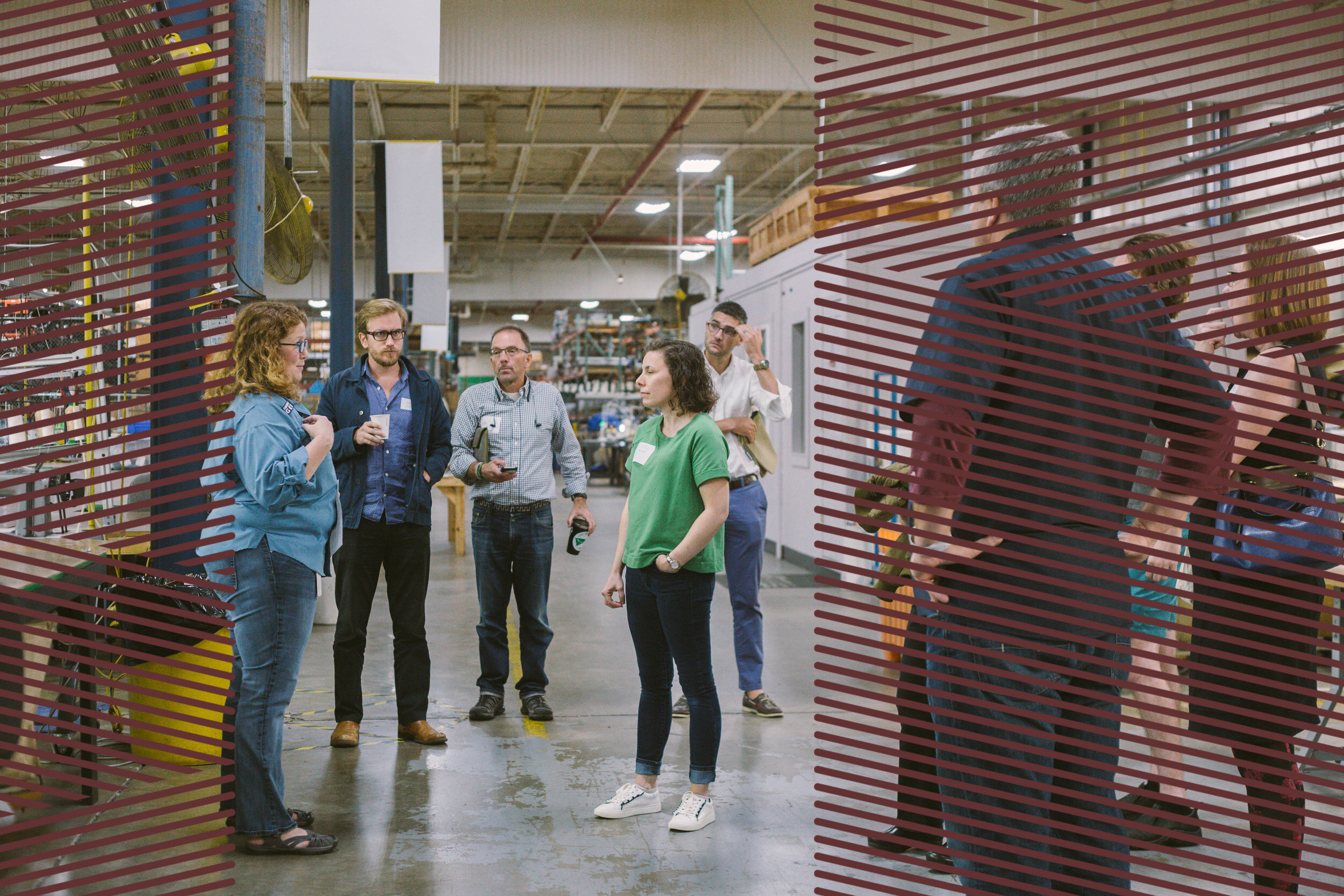Services
Qualified Sourcing
For clients who need help sourcing fabrics and materials, we offer two sourcing options:
1) Sewn Goods 101 Workshop (which teaches you how to source your materials yourself). The in-person workshop includes access to the CTD Sourcing Library, which houses over 3,500 material samples that you can browse through. This has definitely been the most beneficial sourcing option for clients, as it allows them to explore a variety of different materials. For Sewn Goods Workshop dates and pricing, click here.
2) Qualified Sourcing (where our Sewn Goods Instructor compiles a list of possible domestic sources for you). For this option, you will need to know exactly what you are looking to source (content, construction, weight, etc.). The list provided will include domestic mills, wholesalers and converters with information such as pricing, content, construction, minimums, weights, and available colors. The Qualified Sourcing fee runs $95 per hour, with a 2 hour minimum. To get started with sourcing assistance, the first step is to submit a Sourcing Request Form. Once you have submitted your Sourcing Request Form, you will see a success page with a yellow link to schedule a call. If you do not receive this success page, please email Tanya Wade at: twade@manufacturingsolutionscenter.org.
Find-a-Fit
For existing companies or startups that need help finding a qualified designer, pattern maker, printer or contract cut and sew facility.
Our Project Specialist will search for a qualified contractor who is capable of and interested in producing your product, while keeping in mind all your project needs, such as styles, minimums, target price points, required time frame, etc.
$75/hour to secure skilled contractors ($75 deposit)
Two-hour time cap per support type
1-2 weeks for introductions
Mill Network
For scaling and re-shoring brands and retailers looking for production runs of more than 10,000 units.
Our network of cut and sew facilities has the ability to take on and meet the demands of larger contracts. Costs and time frames vary.
We can help.
Development
A successful business plan in the textile industry requires early and thoughtful attention to generating and satisfying market demand for your idea. Understanding the breadth and potential of your idea is critical—it will help you get clear on what you want and need from your production partners.
Testing & Certification
Textile product testing and proper certification are increasingly important to the successful launch and sustainability of a textile-based business. One of our partners is an accredited ISO/IEC testing facility that can test and certify for stretch, flammability, weathering, children's products, antimicrobial capabilities and more.
Design
Creative design drives the entire development process, resulting, ultimately, in production-ready samples. Creative designers in our network can help develop your idea or concept. Technical designers in our network can ready you for production by providing pattern making services (including digital patterns) and technical specifications, which are required for production.
Sourcing
Material sourcing is the process of determining and obtaining all the materials needed for your product. How is the product expected to look, feel, or perform? Are you using knits or wovens? Will the product require accessories like buttons, zippers, or clasps? We can help you sort it out.
Printing & Dyeing
Manufacturers add design, pattern, and color to products using a number of printing and dyeing methods including direct-to-fabric printing, dye sublimation printing and screen-printing. Other design methods include heat transfer and embroidery. Which one is right for your product, fabric, and design will depend on your overall brand strategy.
Tags, Labels, Packaging
Our partners can help with tags, labels and packaging. Your production company will need these on-hand before starting the cut and sew work on your product. Packaging textile products correctly can have a positive impact on your brand, image and sales.
Production & Samples
Production starts with sample development. This is usually a joint project involving you and a cut and sew company. Once the product samples are refined, our manufacturing partners can do a time study to determine final production cost. Minimums vary but our partners can produce as few as 250 units or as many as 50,000.

